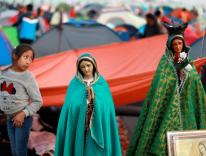When disaster strikes, especially on a massive scale (think oil spills, terrorist attacks, hurricanes), swift relief and just recompense are expected for survivors. How best to compensate victims is rarely clear. But underlying that calculation are deeper questions of value and responsibility. How much is a life worth? Is the family of a rich victim owed more than the family of a poor one? What is the true value of a small business?
Kenneth Feinberg has spent his career sorting through such conundrums. You may remember Feinberg as the man with the title "Special Master." In the months following 9/11, he made sense of the hastily written federal legislation intended to compensate victims and get the airlines off the hook. Feinberg had to devise a formula that would fairly compensate the families of victims who earned millions, as well as the families of those who made minimum wage. And he had to do it without bankrupting the U.S. Treasury.
Taking account of differences in lost salaries, benefits, and the future pensions of dishwashers and corporate executives, Feinberg decided that $250,000 would be the minimum award. Yet, after meeting families, he struggled with enormous disparities in worth and future worth. There was the family of an illegal immigrant who simply handed him a letter lamenting the loss of their father. There were corporate lawyers who argued aggressively on behalf of the families of their deceased colleagues. After thirty-two months of work, 5,562 people received $7 billion in public funds. The highest payment for a deceased victim was $7.1 million, the lowest $250,000. The most seriously injured survivor was given $8.6 million, the least $250,000. In 2005, Feinberg published a succinct account of his work, What Is Life Worth?
Now, in a short book with a long title, Who Gets What: Fair Compensation After Tragedy and Financial Upheaval, he returns to the complexity of apportioning compensation to victims of unexpected disasters. His arbitration efforts have involved several high-profile liabilities, including: the case of Agent Orange, in which chemical companies paid $180 million and a totally disabled Vietnam veteran received $20,000; the Virginia Tech shootings, after which $7 million in private contributions was distributed to eighty claimants; the TARP bailout, which gave the Treasury Department authority to set the salaries for twenty-five executives of seven companies, and which ended up halving their compensation (on average); and, finally, the Gulf oil spill, in which British Petroleum put $20 billion in a compensation fund that had paid out $6 billion by spring 2012 to 575,000 claimants—and denied the claims of another 420,000.
In most cases, the federal government asked Feinberg to step in and calculate the settlements and the criteria for awarding them. (Imagine a congressional committee trying to do this!) Feinberg took no salary in settling the 9/11 program, but he did for the Gulf oil spill settlement. Feinberg's accounts of meeting with victims—sometimes in groups, sometimes individually—suggest he has a Solomonic character, both unflinching and compassionate. His questions about the justice of such settlements are tantalizing. Why do some disasters elicit a public outpouring of money—9/11, but not Oklahoma City? Who's a victim and who's simply a bystander? Do large compensation funds bring healing or do they feed greed, envy, and resentment?
In some cultures justice is thought to require an eye for an eye; in others, simply an apology. In still others, fate is given its due, and justice is left to God (or the gods). As Feinberg sees it, money is the preferred vehicle of justice in the United States. His arbitration efforts are closely related to the tort system: they help victims and potential defendants avoid drawn-out court battles, appeals, and legal fees that eat up monetary awards.
When gridlock is the operative word in Washington, there are many good reasons for presidents, treasury secretaries, and Congress to turn to Kenneth Feinberg to resolve such thorny problems. He will get the job done. Yet his experience of human nature has taught him that special-compensation funds should be rare. They are safety valves in times of national tragedy, but they are also "special rules for a select few." Will rising expectations in times of disaster come to require them? He would not be surprised.
Please email comments to [email protected] and join the conversation on our Facebook page.
Share
Previous Story
Should Notre Dame have a football team?
Next Story
The Supper of the Lamb


